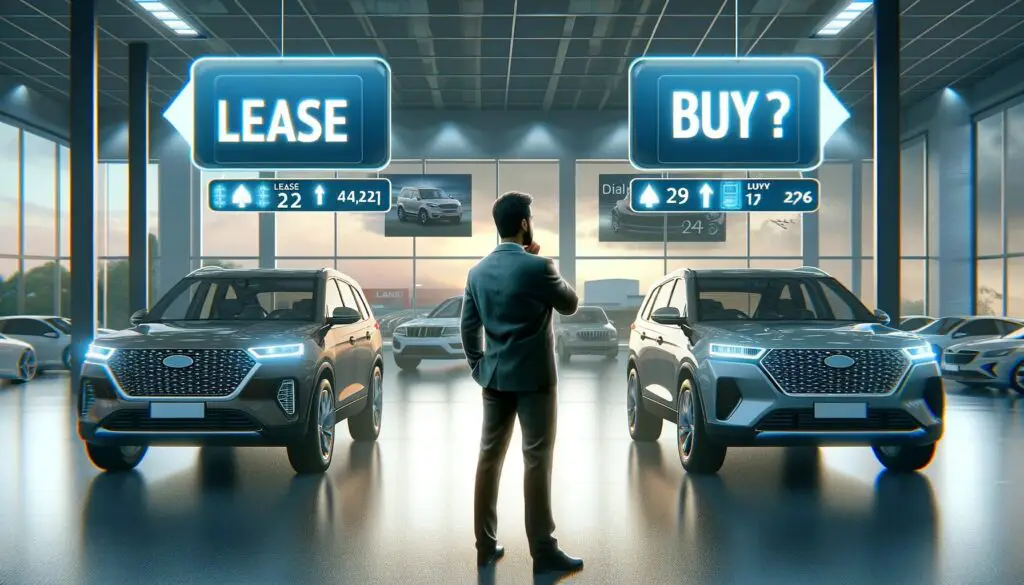One of the biggest decisions when getting a new car is whether to lease or buy. Both options have advantages, but the right choice depends on your finances, driving habits, and lifestyle.
In this article, we’ll compare leasing vs. buying in 2026 with real examples, costs, and scenarios — so you’ll know which path makes sense for you.
What Does It Mean to Lease a Car?
Leasing is like renting a car long-term (usually 24–36 months). You pay for the vehicle’s depreciation + interest + fees instead of ownership. At the end of the lease, you can return the car, buy it, or start a new lease.
What Does It Mean to Buy a Car?
Buying means financing or paying cash to own the vehicle. You can keep it as long as you like, customize it, and eventually sell it. Monthly payments are often higher than leases, but once the loan is paid off, the car is yours.
Lease vs. Buy: Key Differences
| Factor | Leasing | Buying |
|---|---|---|
| Ownership | You don’t own the car; return or buy at lease-end | You own it after loan payoff |
| Monthly Payments | Lower (you only pay for depreciation) | Higher (paying full price + interest) |
| Upfront Costs | Often lower (but includes fees & first month) | Higher (down payment, taxes, fees) |
| Mileage Limits | Usually 10k–15k miles/year | Unlimited |
| Maintenance | Covered under warranty (usually 2–3 years) | Owner pays after warranty expires |
| Customization | Not allowed | Fully allowed |
| Long-Term Cost | More expensive if leasing continuously | Cheaper if keeping car long-term |
| Flexibility | Easy to upgrade every 2–3 years | Best if you plan to keep car 7–10 years |
Pros & Cons of Leasing
Pros:
-
Lower monthly payments
-
Drive a new car every 2–3 years
-
Always under warranty (low maintenance risk)
-
Access to EV incentives passed through leases
Cons:
-
Mileage restrictions (fees if exceeded)
-
No ownership or resale value
-
Potential wear-and-tear charges
-
Higher cost if you lease repeatedly
Pros & Cons of Buying
Pros:
-
Full ownership after loan payoff
-
Unlimited mileage
-
You can modify or customize freely
-
Long-term cost savings if you keep car 7+ years
Cons:
-
Higher monthly payments initially
-
Depreciation hits hard in first 3 years
-
Maintenance & repair costs rise after warranty ends
-
Harder to upgrade frequently
Cost Example: Leasing vs. Buying the Same SUV
-
Lease Example (2026 Toyota RAV4): $357/mo × 36 months = ~$12,852 + $2,000 due at signing → $14,852 total (no ownership at the end).
-
Buy Example (2026 Toyota RAV4 MSRP $32,000, financed at 5% for 60 months): $604/mo × 60 months = ~$36,240 → but you own the car after 5 years and can drive it payment-free for another 5–10 years.
👉 Leasing is cheaper short term. Buying is cheaper long term.
Which Option is Better for You?
-
Choose Leasing If:
-
You like driving new cars every few years
-
You drive less than 12k miles per year
-
You want lower monthly payments
-
You want to avoid resale hassles
-
-
Choose Buying If:
-
You plan to keep the car for 7–10 years
-
You drive long distances regularly
-
You want an asset with resale value
-
You don’t mind higher upfront costs
-
FAQs
Q: Is leasing good for first-time buyers?
Yes, leasing can be good if you want lower payments and short-term flexibility, but it’s not ideal if you drive a lot.
Q: Do leased cars include insurance?
No, you must still buy insurance, often with higher coverage requirements.
Q: Can I buy my car after the lease ends?
Yes, most leases include a buyout option at a pre-set price.
Q: Is leasing better for EVs?
Yes, because EV technology changes fast and leasing avoids resale risk while letting you upgrade sooner.
Conclusion
So, is it better to lease or buy a car in 2026?
-
Leasing = lower monthly payments, new cars every few years, but no ownership.
-
Buying = higher upfront costs, but cheaper long-term and full ownership.
👉 The decision comes down to your driving habits, budget, and long-term plans. If flexibility matters, lease. If long-term savings matter, buy.
Resources and Further Reading
For comprehensive insights and expert guidance on leasing vs. buying considerations, explore the following resources:
- Books: “The Ultimate Car Leasing Guide” by John Smith
- Websites: Edmunds.com, Kelley Blue Book (kbb.com)
- Tools: Lease vs. Buy Calculator (leaseguide.com)







